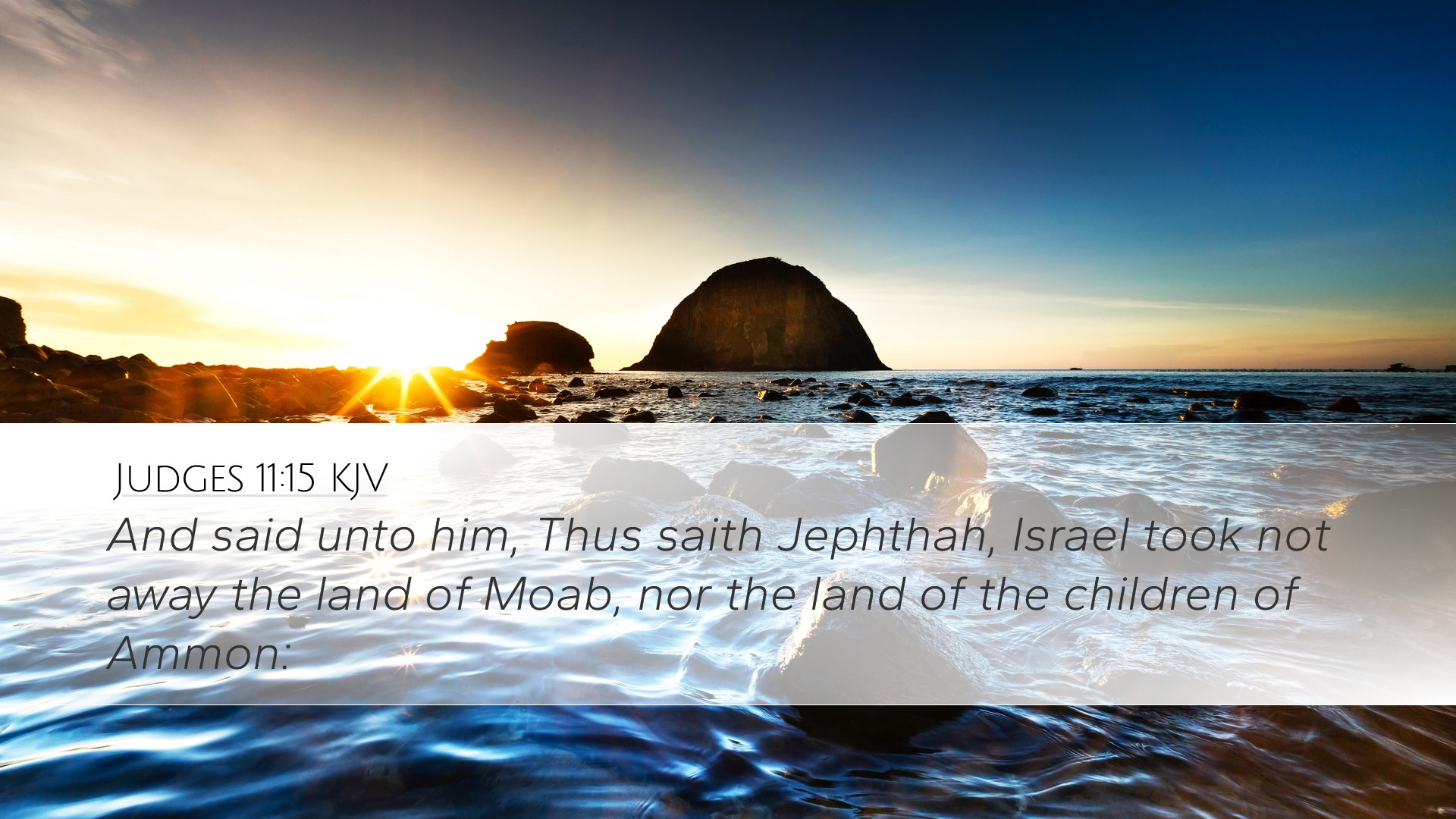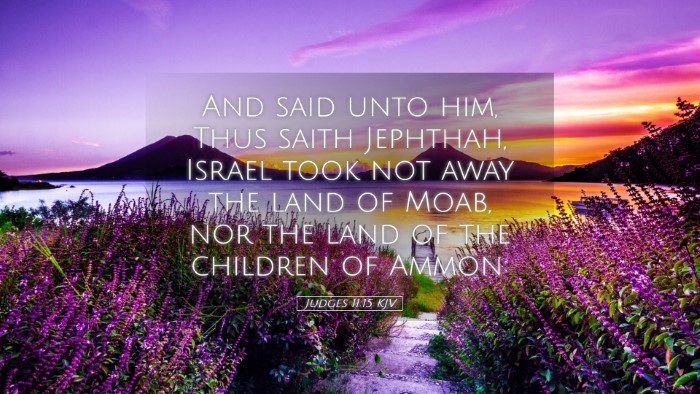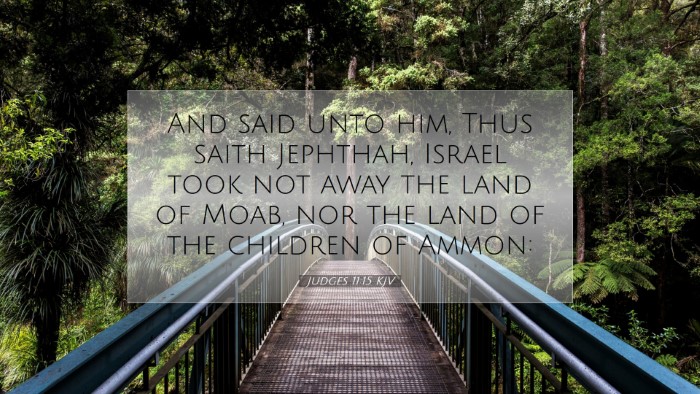Commentary on Judges 11:15
Judges 11:15 states, "And said unto the king of the children of Ammon, Israel took not away the land of Moab, nor the land of the children of Ammon." This verse falls within the larger narrative of Jephthah's conflict with the Ammonites and serves to highlight several theological and historical themes relevant to understanding the issues faced by Israel at that time.
Historical Context
In the context of this passage, we are dealing with the period of the Judges, a time characterized by cycles of apostasy, oppression, repentance, and deliverance. Israel was often at odds with surrounding nations, with Ammon being one of the principal adversaries during this time. Jephthah's response to the Ammonite claims reveals both a defense of Israel's national integrity and a broader theological stance regarding God's guidance and heritage.
Theological Implications
The verse invites theological reflection on God's providence in the history of Israel. According to Matthew Henry, Jephthah’s assertion is a reminder of God's promises concerning the land He gave to His chosen people. This land is not only a physical possession but also a divine inheritance.
Albert Barnes emphasizes that Jephthah points out the historical truth of Israel's conquest, suggesting that Israel did not seize the land unjustly from Ammon, but rather that their claim is unfounded. This distinction is critical, as it illustrates the essence of God's justice in the distribution of the land.
Jephthah's Rhetoric
Jephthah’s rhetoric is striking in its combination of historical assertion and personal appeal. Adam Clarke notes that Jephthah adopts a very diplomatic approach, attempting to resolve the conflict through historical argumentation rather than warfare initially. His appeal to history serves not only to negate the claims of the Ammonites but also to unify the Israelites under a common heritage.
The mention of both Moab and Ammon serves to highlight Israel's integrity and to establish a moral claim in the face of their adversaries. Jephthah is asserting Israel's rights based on their divinely sanctioned history and taking a stand against unwarranted aggression.
Lessons for Today
For pastors, theologians, and Christian students, this verse provides valuable insights. It underscores the importance of knowing and articulating community history, particularly as it relates to the faith and the broader narrative of God's work in the world.
- Historical Awareness: Like Jephthah, contemporary Christians should understand their own spiritual heritage. This awareness strengthens faith and encourages unity.
- The Nature of Conflict: The verse illustrates a biblical approach to conflict resolution, favoring dialogue and careful reasoning over immediate violence.
- Divine Heritage: Understanding that one's place in the world and the church is defined by God's promises can provide a sense of purpose and identity amidst trials.
Conclusion
Judges 11:15 serves as a multifaceted verse that combines historical narrative with profound theological significance. It demonstrates how Israel, under Jephthah's leadership, faced external threats while maintaining its internal integrity and relationship with God. Engaging with the context and implications of this verse can provide contemporary believers with vital lessons on faithfulness, heritage, and the nature of righteous conflict.


